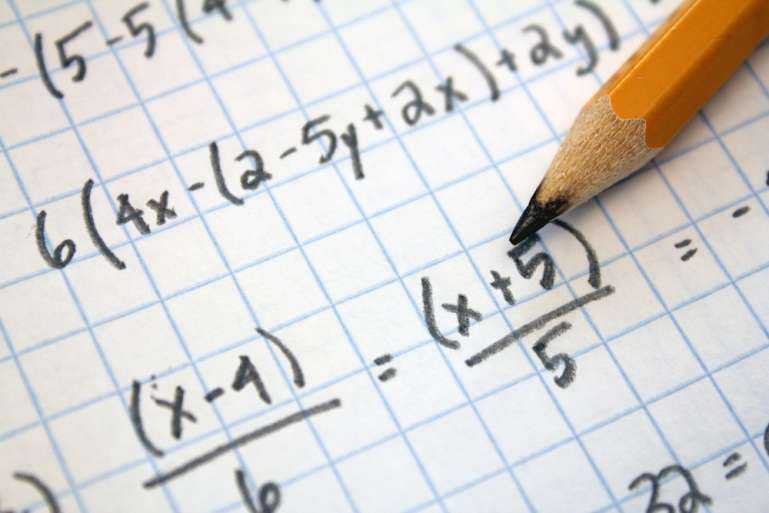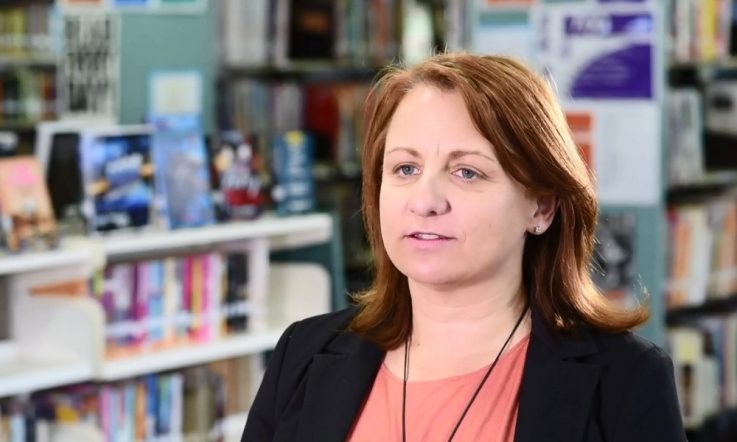As a mathematics educator, I have worked with many students suffering from mathematics anxiety.
I have taught six-year-olds in a Year 1 Mathematics Intervention program, senior secondary students studying Year 12 mathematics subjects and adults studying to be early childhood, primary and secondary teachers. The symptoms of mathematics anxiety varied from expressing a dislike of mathematics to an adult who had to exit a lecture theatre in a hurry when numbers were displayed on a screen.
Researchers have found that the way mathematics is taught contributes to mathematics anxiety, particularly when there is an emphasis on rote learning of rules and procedures. Timed tests and 'drill type' games cause stress for many students in mathematics classrooms. When working with tertiary students training to be primary teachers the level of anxiety was increased when they had to complete timed tests as a hurdle requirement in their first year mathematics subject.
‘Maths anxiety is a problem for educators because it can prevent students from demonstrating their maths capabilities. In the long term, it can lead to students avoiding situations that involve maths, which means they may shut the door on some important opportunities,’ Dr Sarah Buckley, Research Fellow at the Australian Council for Educational Research says.
Whether working with children or adults I have found that one of the most important things that I can do as a parent, teacher, tutor, or lecturer is to develop a good relationship with the student experiencing mathematics anxiety. I needed to provide support and encouragement by demonstrating what these students could already do and what they needed to do next. The onus on me as the mathematics teacher is to demonstrate that I have confidence in their ability to eventually succeed with mathematical tasks at their level.
As a parent, teacher, and lecturer I always try to demonstrate my passion for mathematical activities, that I do not know all the answers, that I sometimes make mistakes and have to try different solution methods, that I value alternative ways of solving problems and that I can always learn something new. I still get excited when a student can show me an alternative way of solving a mathematical task that I had not tried previously.
One of the aims stated in The Australian Curriculum: Mathematics is for students to: ‘recognise connections between the areas of mathematics and other disciplines and appreciate mathematics as an accessible and enjoyable discipline to study’ (ACARA, 2014). We need to ensure students can recognise the mathematics in their everyday lives and in the other subjects they are studying.
Swan (2004) lists six ways that teachers can engage their students’ interest in mathematics. These include using literature that focuses on mathematical content to engage students, using mathemagic that links to the development of meaningful mathematics, games that have a clear purpose and specific mathematical content, investigations that focus on interesting problems or using mathematical trivia and making links between the mathematics students complete in the classroom and their everyday life. However, a context that is real life or everyday for a teacher may not be relevant to the students they are teaching.
A paper entitled Strategies for reducing math anxiety (2011) lists several techniques for teachers to use to lessen their students’ mathematical anxiety. Techniques include strategies such as: developing strong mathematical content knowledge and positive attitudes towards mathematics; encouraging their students to use critical thinking and active learning; placing more emphasis on understanding rather than rules and procedures; using concrete materials and technology; and providing support and encouragement for all students.
Parents should have realistic expectations of their children and providing ongoing support and encouragement, while students should incorporate practice into their daily routine, and focus on their earlier mathematical successes rather than failures.
Buckley says: ‘It is vital that students understand that ‘being good at maths’ is not simply something that people are born with – practice will lead to improvement,’ so both parents and teachers should provide ongoing encouragement for them to study according to the way they learn best.
References
ACARA (2014). Australian Curriculum: Mathematics v6.0. Last accessed from http://www.australiancurriculu...
Blazer, C. (2011) Strategies for Reducing Math Anxiety. Information Capsule. Volume 1102. Research Services, Miami-Dade County Public Schools. Last accessed from http://files.eric.ed.gov/fullt...
Swan, P. (2004) I hate mathematics! Paper presented at Towards Excellence in Mathematics, The 2004 MAV Annual Conference held at Monash University, Clayton Campus, on Thursday 2 and Friday 3 December 2004. Last accessed from http://www.mav.vic.edu.au/file...
How do you deal with maths anxiety in the classroom?



